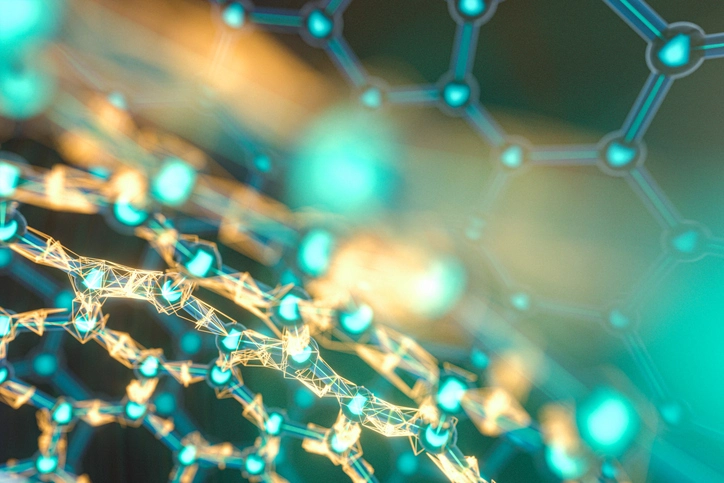ISO/IEC 29182 Performance Benchmarking of Smart Device Sensor Networks
The ISO/IEC 29182 standard is a cornerstone in the evaluation and benchmarking of smart device sensor networks. This standard ensures that sensor data is accurate, reliable, and consistent across various devices, platforms, and environments. In the context of smart home and IoT (Internet of Things) environments, where biomaterials play a critical role, this standard becomes indispensable for ensuring interoperability and seamless integration.
Smart device sensor networks in smart homes often incorporate biomaterials such as sensors made from silicon, metal oxides, and polymers. These materials are chosen for their sensitivity to environmental changes like temperature, humidity, light, and motion. The performance of these sensors is crucial not only for the functionality of home automation but also for ensuring user safety and comfort.
The standard defines a series of tests that measure the precision, accuracy, resolution, stability, linearity, and repeatability of sensor data. These tests are conducted under controlled conditions to ensure that the results are comparable across different manufacturers and products. This is particularly important in biomaterials testing where slight variations can have significant impacts on performance.
The benchmarking process involves simulating real-world scenarios such as temperature fluctuations, humidity changes, and exposure to various environmental factors. By doing so, it ensures that sensor networks perform consistently under diverse conditions, which is essential for maintaining the integrity of smart home systems. The standard also takes into account the long-term durability and reliability of biomaterials used in these devices.
For quality managers and compliance officers, understanding ISO/IEC 29182 is vital as it provides a framework for ensuring that products meet international standards. R&D engineers benefit from this standard by having a clear roadmap to develop sensors that are not only accurate but also robust enough to withstand the rigors of real-world use.
For procurement professionals, compliance with ISO/IEC 29182 ensures that they can source high-quality biomaterials and sensor networks. This leads to more efficient supply chains and reduced costs due to fewer returns and rejections.
Why It Matters
The importance of the ISO/IEC 29182 standard in smart home and IoT environments cannot be overstated, especially when biomaterials are involved. The standard ensures that sensor networks operate reliably and consistently across different devices and platforms. This is crucial for maintaining the integrity and functionality of smart homes.
- Ensures interoperability between different devices and systems
- Maintains data accuracy and consistency
- Supports long-term reliability and durability of biomaterials
- Promotes consistent performance across varying environmental conditions
The standard is particularly important in the context of smart homes where multiple devices need to work together seamlessly. Without this benchmarking, there would be a high risk of incompatible systems that do not function as intended. This could lead to user frustration and dissatisfaction.
For quality managers, compliance with ISO/IEC 29182 is essential for ensuring product consistency and reliability. It also helps in identifying any issues early on in the development process, reducing costly rework and recalls. For R&D engineers, this standard provides a clear set of criteria to aim for when developing new sensor technologies.
For procurement professionals, compliance with ISO/IEC 29182 ensures that they can source high-quality biomaterials and sensor networks. This leads to more efficient supply chains and reduced costs due to fewer returns and rejections. In summary, the standard is essential for maintaining product quality, reliability, and interoperability in smart home environments.
Applied Standards
The ISO/IEC 29182 standard is a key component of the broader framework for evaluating sensor networks in IoT devices. It aligns with other international standards such as ISO/IEC 17025, which sets requirements for the competence of testing and calibration laboratories. This alignment ensures that labs conducting performance benchmarking are themselves compliant with high-quality practices.
The standard also references IEEE standards related to sensor networks and wireless communication protocols, ensuring that the benchmarking process is compatible with existing technologies used in smart homes and IoT devices. By aligning with these standards, ISO/IEC 29182 ensures that sensor data can be trusted across different platforms and environments.
For biomaterials specifically, the standard takes into account the unique properties of materials like silicon, metal oxides, and polymers used in sensors. It ensures that these materials are tested under conditions that accurately reflect their real-world usage. This includes exposure to varying environmental conditions such as temperature, humidity, and light.
The standard also considers the long-term durability of biomaterials used in smart home devices. By ensuring consistent performance over time, it helps manufacturers develop products that can withstand the test of time. This is particularly important for biomaterials which may degrade or lose functionality over prolonged periods.
Competitive Advantage and Market Impact
- Enhanced Trust and Reputation: Compliance with ISO/IEC 29182 enhances the reputation of a company, building trust among consumers and stakeholders. This can lead to increased market share.
- Improved Product Quality: By ensuring accurate and consistent sensor data, companies can improve product quality, leading to higher customer satisfaction and loyalty.
- Cost Savings: Early identification of issues through benchmarking reduces the need for costly rework and recalls. This leads to significant cost savings in the long run.
- Innovation: Compliance with this standard encourages innovation by providing a clear framework for developing new sensor technologies that are reliable and interoperable.
The market impact of ISO/IEC 29182 is profound. It sets a benchmark for the performance of smart device sensor networks, ensuring that products meet high standards of quality and reliability. This standard also drives innovation by providing a clear roadmap for R&D engineers to follow when developing new technologies.
Compliance with this standard can give companies a competitive edge in the market. It ensures that their products are not only reliable but also interoperable, which is essential in the complex world of smart homes and IoT devices. This standard also helps companies to comply with regulatory requirements, ensuring that they meet all relevant standards.





